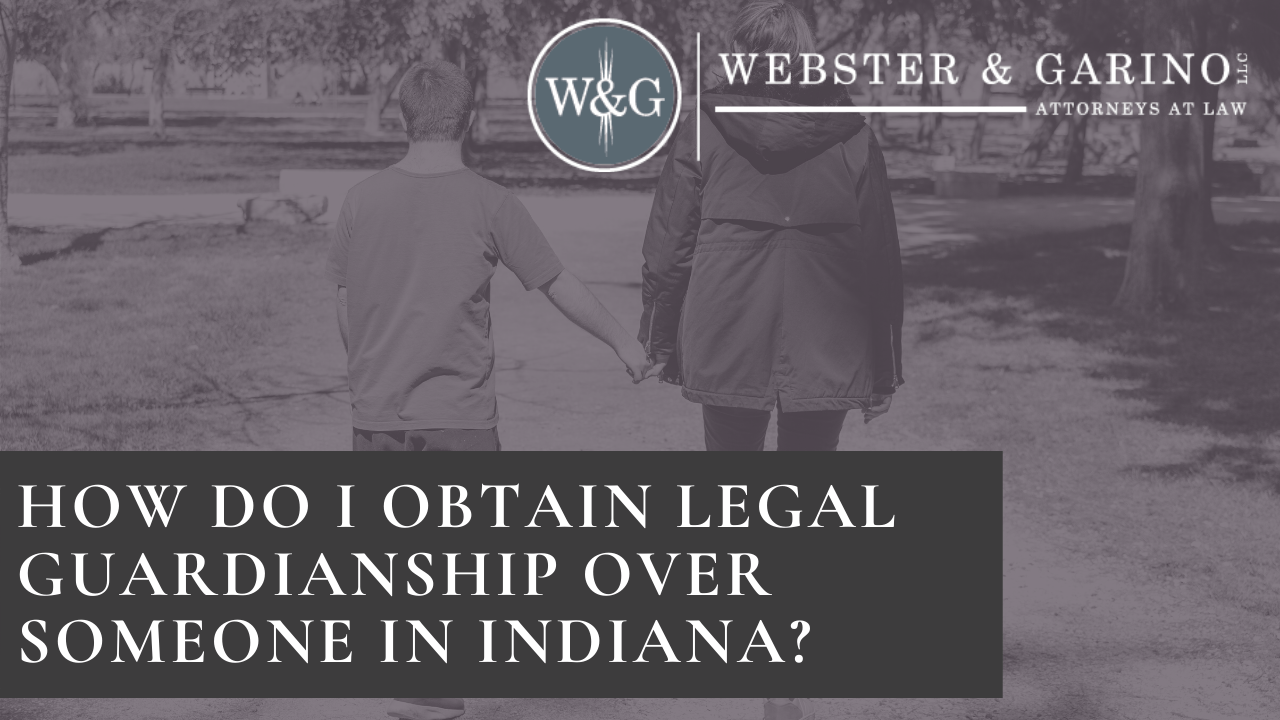How Do I Obtain Legal Guardianship in Indiana?

Table of Contents
2025 UPDATED Guide to Legal Guardianship in Indiana:
Legal guardianship in Indiana is a critical legal tool designed to protect individuals who cannot manage their own affairs due to age, disability, or incapacity under indiana law. Whether seeking legal guardianship Indiana for a minor child or an incapacitated adult, understanding the Indiana guardianship process is essential. This guide explores the different types of guardianship Indiana, legal procedures, recent legislative changes, and alternative options available under Indiana guardianship laws.
What Is Legal Guardianship?
A legal guardian is a person appointed by a court order to make decisions on behalf of another individual, referred to as the protected person or ward, sometimes described as an allegedly incapacitated person. Guardians are responsible for ensuring the ward’s personal well-being and financial affairs are properly managed.
Common reasons to file for guardianship in Indiana include:
- Caring for an adult with severe cognitive disabilities
- Assisting an elderly individual with advanced dementia
- Protecting a minor whose parents are deceased or unable to care for them
- Managing financial assets for someone unable to do so
In all cases, the court’s primary concern is determining whether guardianship is in the ward’s best interest under indiana law.
Types of Guardianship in Indiana
Indiana guardianship laws recognize several forms of guardianship Indiana, depending on the needs of the protected person:
- Guardian of the Person – Manages the ward’s daily needs, including medical care, housing, and education.
- Guardian of the Estate – Handles the ward’s financial affairs, such as paying bills, managing property, and overseeing income.
- Guardian of the Person and Estate – Oversees both personal and financial matters.
Courts may also grant temporary or emergency guardianship when immediate action is necessary, such as in cases of abuse or medical emergencies, until the court later may terminate guardianship in Indiana.
How to Obtain Legal Guardianship in Indiana
The process of obtaining guardianship indiana involves several legal steps required by indiana law:
1. File a Petition
A petition must be submitted to the Indiana probate court in the county where the ward resides. This document outlines:
- The reason for seeking guardianship
- The ward’s current condition and level of incapacity as an allegedly incapacitated person
- The petitioner’s relationship to the ward
- Any existing legal documents, such as a power of attorney
- Identification of the proposed person to serve as guardian
2. Notify Interested Parties
State law requires that family members and other relevant individuals be notified about the guardianship petition. This ensures that all parties have an opportunity to contest or support the request, and notice must generally be provided within 60 days as required by indiana law.
3. Court Evaluation
The court may appoint a Guardian Ad Litem or require a medical evaluation to assess the ward’s ability to make independent decisions. The judge will review reports from doctors, social workers, and other professionals.
4. Attend the Court Hearing
During the hearing on the petition, the judge will determine whether guardianship is necessary. If approved, the court will issue letters of guardianship, granting legal authority through a formal court order to the appointed person to serve as guardian.
5. Ongoing Responsibilities
Guardians must file periodic reports with the court, detailing financial transactions and the well-being of the ward. If a guardian fails to meet their guardianship responsibilities, the court may decide to modify or terminate guardianship in Indiana.
Recent Changes to Indiana Guardianship Laws in 2025
Indiana has introduced several updates to improve protections for wards and ensure guardianship indiana is the least restrictive option under indiana law:
- Expanded Supported Decision-Making: Courts must now consider Supported Decision-Making Agreements (SDMAs) before granting guardianship. This allows individuals to retain decision-making power with assistance from trusted supporters.
- Mandatory Least Restrictive Alternative Review: Judges are required to explore alternatives before appointing a guardian.
- Increased Oversight for Guardians: Courts now demand enhanced financial reporting and periodic well-being assessments to prevent abuse or neglect.
These changes reinforce the importance of consulting a guardianship lawyer near me or a specialized guardianship lawyer in Indiana to ensure compliance with the latest legal standards.
Alternatives to Guardianship
Guardianship is a significant legal responsibility and should only be pursued when necessary. Alternatives include:
- Power of Attorney (POA) – Allows an individual to designate a trusted person to manage their financial or medical affairs.
- Healthcare Representative – Appoints someone to make medical decisions if the individual becomes incapacitated.
- Supported Decision-Making Agreements (SDMAs) – Provides assistance with decisions without removing legal rights.
A knowledgeable estate planning attorney in Indiana can help explore these options before proceeding with guardianship.
Responsibilities of a Guardian
Once appointed, a guardian must:
- Ensure the ward’s daily needs are met
- Manage financial affairs responsibly
- Make medical and legal decisions in the ward’s best interest
- Submit regular reports to the court detailing financial expenditures and overall well-being
Failure to fulfill these duties may result in legal consequences, including removal as guardian.
When to Seek Legal Assistance
The Indiana guardianship process can be complex, requiring extensive documentation and legal proceedings. Consulting an experienced guardianship lawyer in Indiana ensures compliance with Indiana guardianship laws and prevents unnecessary delays. A legal expert can also help determine whether less restrictive alternatives are available.
When to Seek Legal Assistance
Obtaining legal guardianship in Indiana is a structured process that safeguards the rights and well-being of individuals unable to care for themselves. Whether you’re navigating the legal system for a loved one or seeking alternatives, understanding your options is crucial. Consulting an estate planning attorney or a guardianship lawyer near me in Indiana can help you make informed decisions and ensure a smooth guardianship indiana process.
If you have questions about legal guardianship in Indiana or need guidance on the process, call us at (317) 497-5892 to schedule a complimentary case review.”
DISCLAIMER/ATTORNEY MESSAGE:
The information contained in this website/webpage, including, but not limited to, written material, recorded material, and/or video/visual material is provided for informational purposes only, and should not be construed as legal advice on any matter.
The transmission and receipt of information on or through this website, in whole or in part, or communication with Webster & Garino LLC via the Internet or e-mail through this website does not constitute or create an attorney-client relationship between us and any recipient. You should not send us confidential information in response to this website or webpage. Such responses will not create an attorney-client relationship, and whatever you disclose to us will not be privileged or confidential unless we agree to act as your legal counsel and you have signed an engagement letter with Webster & Garino LLC. The material on this website/webpage may not reflect the most current legal developments. The content and interpretation of the law addressed herein is subject to revision. We disclaim all liability with respect to actions taken or not taken based on any and all of the contents of the website/webpage to the fullest extent provided by law. Do not act or refrain from acting based upon this educational information only without seeking your own professional legal counsel.











